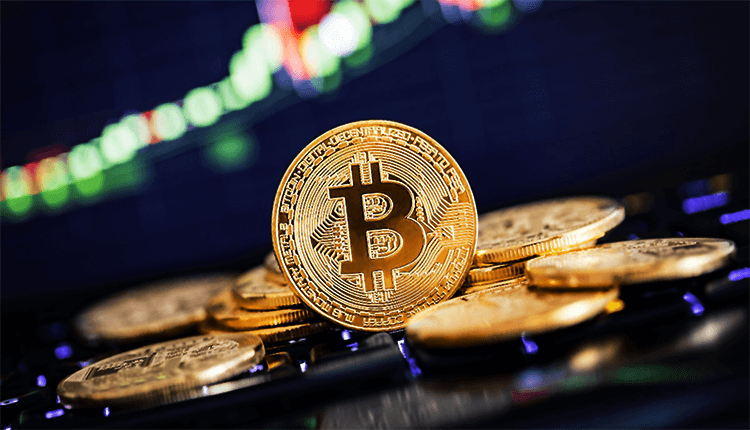
Bitcoin Price Experiences a Rapid Drop to $40,000
Bitcoin price fell to their lowest level since September on Monday. The rising interest rates continued to cause investors to dump positions in riskier, growth-oriented assets.
Bitcoin price fell as much as 6% to hit a low of $39,771.91, recouping most of its losses. It was down about 1.3 percent at $41,904.87 around 4 p.m. Eastern time.
Ether, the second-largest cryptocurrency by market cap, also recovered losses. It fell to $2,940 in the morning and was last down 3.4% at $3,090.67.
After a rough week of trading stocks, especially momentum stocks, the entire cryptocurrency market saw a dip. Investors have been turning to more cyclical, and value names as 10-year Treasury yields soar from 2022. The 10-year Treasury yield climbed to 1.8% on Monday and ended 2021 at 1.5%.
Bitcoin price hit an all-time high, $69,000, in November after inflation data showed consumer prices’ biggest rise in 30 years. The reading led investors to jump into inflation hedges, including bitcoin and gold.
Because of the way cryptocurrencies trade with stocks, investors are more divided than ever over whether bitcoin can serve as a reliable inflation hedge. Last week, Goldman Sachs said it believes Bitcoin will take market share from gold and could climb to $100,000.
However, since November, cryptocurrency prices have fallen steadily, with Bitcoin price down around 40%. Bitcoin added to its losses last week after the Federal Reserve said it intends to shrink its balance sheet. In addition to this, investors were already preparing for shrinking bonds and raising interest rates.

UAE Regulators Get Ready For Cryptocurrency And Blockchain Adoption
Many countries tend to ban Bitcoin (BTC) and digital assets simply. Meanwhile, regulators in the United Arab Emirates are taking a different approach.
The country has been fulfilling its vision of becoming blockchain capital by providing a framework to guide cryptocurrency businesses on operating legally.
The country’s jurisdictions are divided into mainland (regulatory authority is the Securities and Commodities Authority (SCA)) and free zones (geographically specific areas within the UAE with a relaxed tax and regulatory regime).
Such free zones include the Dubai International Financial Centre (DIFC), regulated by the Dubai Financial Services Authority (DFSA), the Abu Dhabi Global Market (ADGM), regulated by the Financial Services Regulatory Authority (FSRA), and the Dubai Multi-Commodities Centre ( DMCC), which falls under the purview of SCA.
ADGM’s financial services regulator, the FSRA, was the first to introduce digital asset regulation in the country back in 2018. ADGM was one of the first regulators to submit digital securities regulations and guidelines for digital assets. ADGM is one of the highest jurisdictions that have established blockchain companies.
Current DFSA regulations cover the tokenization of securities through blockchain and distributed ledger technology. It includes stocks, derivatives, bonds, bonds, certificates, or fund units. However, consultation papers on stablecoins, fungible cryptocurrencies, and non-fungible tokens are still being drafted.
Meanwhile, cryptocurrency exchange Binance has embarked on a partnership with the UAE government to assist cryptocurrency exchanges and businesses in obtaining licenses in Dubai. The company signed a memorandum of understanding with the Dubai World Trade Center Authority when launching the crypto center.

Thailand Government Clarifies Crypto Tax Confusion
Thailand is fast-tracking its crypto tax plan. It prepares regulations for digital asset traders this month to further clarify crypto-related activities.
The head of Thailand’s Revenue Authority said clear criteria for calculating the tax on profits from crypto transactions would be finalized this month.
The announcement comes less than a week after the Southeast Asian country’s government unveiled plans to impose a 15 percent capital gains tax on cryptocurrency traders and miners.
Thai Prime Minister Prayut Chan-o-cha directed the tax department to brainstorm and clarify the issue for investors and the public.
The department has held discussions with the Bank of Thailand, the Securities and Exchange Commission, and the Stock Exchange of Thailand.
The concern of some traders is that profits and trades made in previous years may be subject to back taxes or penalties.
The new tax applies only to the profits of traders and miners, not to Thai digital asset exchanges. The largest of these exchanges are affiliated with commercial banks and billionaire business tycoons. Those who fail to comply with the new filing requirements could be subject to heavy fines.
The move comes after the central bank of Thailand warned commercial banks and businesses about accepting digital assets as a payment method.
In December, the Bank of Thailand said it would introduce new measures to regulate crypto-related activities by individuals and businesses.
However, growing regulatory pressure on the industry is not working in the Kingdom’s tourism ministry. This sector aims to attract crypto whales and digital nomads to help revive the pandemic-hit tourism industry.
-
Support
-
Platform
-
Spread
-
Trading Instrument




